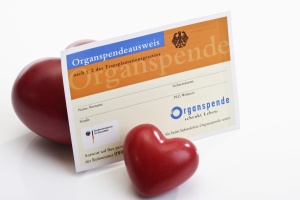With European elections coming up in May 2019, you probably want to know how the European Union impacts your daily life, before you think about voting. In the latest in a series of posts on what Europe does for you, your family, your business and your wellbeing, we look at what Europe does for transplant patients.
In the European Union, 16 patients die every day waiting for the organs they need. Around 60 000 patients are on waiting lists. Organ transplantation is becoming an increasingly common way to save human lives or to improve their daily life, but its application is limited by the shortage of available organs. Kidneys are the most frequently transplanted organ.
Twitter Hashtag #EUandME

Transplant patients have been able to rely on EU quality and safety standards since 2010. The European action plan on organ donation and transplantation also strengthened cooperation between EU countries, therefore now those in need of an organ can benefit from the wider range of organs that cross-border donation can provide. Several EU initiatives help increase people’s awareness and willingness to donate. Recently, the European Parliament proposed the EUDONORG pilot project, which organises training for health professionals and other relevant groups, as well as national awareness events in EU countries.
The third EU health programme (2014-2020) funds projects and joint action with national authorities. One EU-funded project is FOEDUS (‘facilitating exchange of organs donated in EU Member States’) on cross-border organ exchange. The EU also finances the HOTT project, investigating the trafficking in human beings for the purpose of organ removal.
The results are encouraging and shows that when Europe pools its resources and expertise, it can deliver real results for patients.
Further information
- European Commission, ‘Journalist Workshop on Organ donation and transplantation. Recent Facts & Figures’, https://ec.europa.eu/health/sites/health/files/blood_tissues_organs/docs/ev_20141126_factsfigures_en.pdf
- European Commission, Health-EU newsletter 183, ‘Organ donation and transplant in the EU – progress but much more to do’, http://ec.europa.eu/health/newsletter/183/focus_newsletter_en.htm
- EPRS | European Parliamentary Research Service: www.epthinktank.eu

![Transplant patients [What Europe does for you]](https://theme-one.epthinktank.be/app/uploads/2018/07/fotolia_75731794_subscription_xxl-scaled.jpg)






Be the first to write a comment.